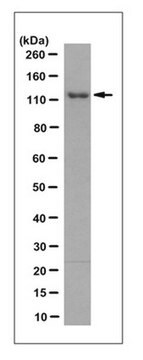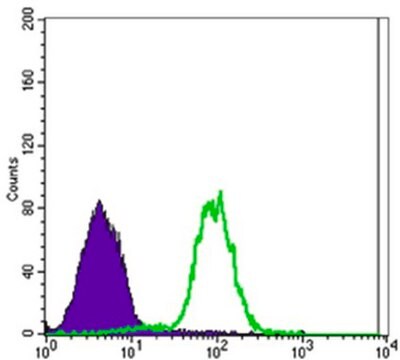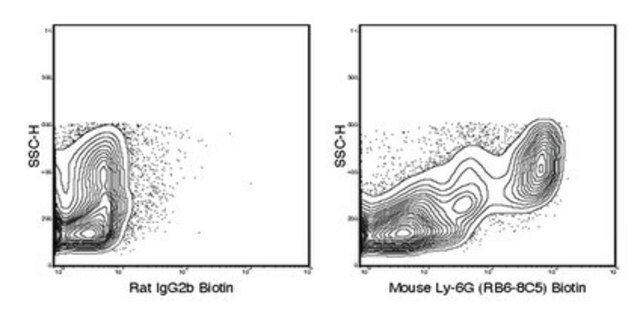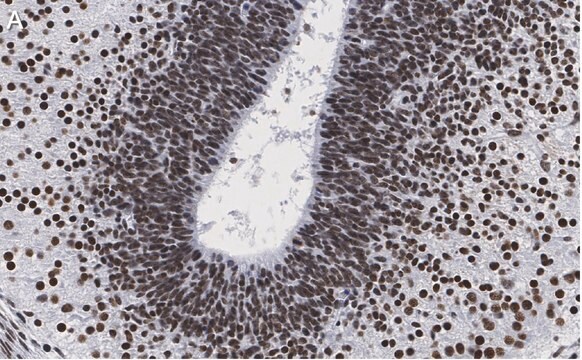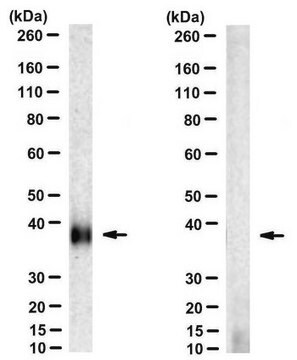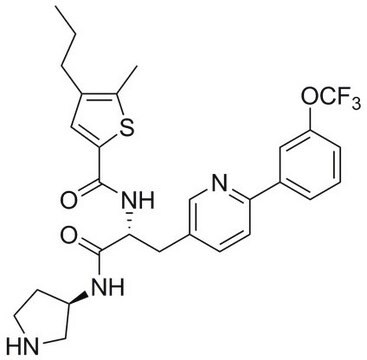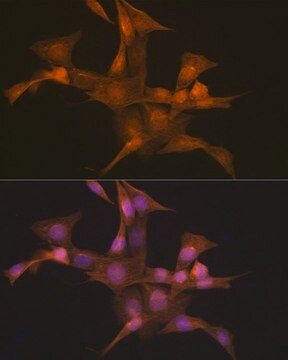MABN704
Anti-ASS1 Antibody, clone 2C10
clone 2C10, from mouse
Synonyme(s) :
Argininosuccinate synthase, Citrulline--aspartate ligase, ASS1
About This Item
Produits recommandés
Source biologique
mouse
Niveau de qualité
Forme d'anticorps
purified antibody
Type de produit anticorps
primary antibodies
Clone
2C10, monoclonal
Espèces réactives
mouse, human, rat, monkey
Technique(s)
immunohistochemistry: suitable
western blot: suitable
Isotype
IgG1
Numéro d'accès UniProt
Conditions d'expédition
wet ice
Modification post-traductionnelle de la cible
unmodified
Informations sur le gène
human ... ASS1(445)
Description générale
Immunogène
Application
Optimal working dilutions must be determined by end user.
Neuroscience
Neurodegenerative Diseases
Qualité
Western Blotting Analysis: A 1:500-2,000 dilution of this antibody detected ASS1 in A431, Raji, MOLT4, Jurkat, A549, NIH/3T3, PC-12 and Cos7 cell lysates.
Description de la cible
Forme physique
Stockage et stabilité
Remarque sur l'analyse
A431, Raji, MOLT4, Jurkat, A549, NIH/3T3, PC-12 and Cos7 cell lysates
Clause de non-responsabilité
Vous ne trouvez pas le bon produit ?
Essayez notre Outil de sélection de produits.
Code de la classe de stockage
12 - Non Combustible Liquids
Classe de danger pour l'eau (WGK)
WGK 2
Point d'éclair (°F)
Not applicable
Point d'éclair (°C)
Not applicable
Certificats d'analyse (COA)
Recherchez un Certificats d'analyse (COA) en saisissant le numéro de lot du produit. Les numéros de lot figurent sur l'étiquette du produit après les mots "Lot" ou "Batch".
Déjà en possession de ce produit ?
Retrouvez la documentation relative aux produits que vous avez récemment achetés dans la Bibliothèque de documents.
Notre équipe de scientifiques dispose d'une expérience dans tous les secteurs de la recherche, notamment en sciences de la vie, science des matériaux, synthèse chimique, chromatographie, analyse et dans de nombreux autres domaines..
Contacter notre Service technique